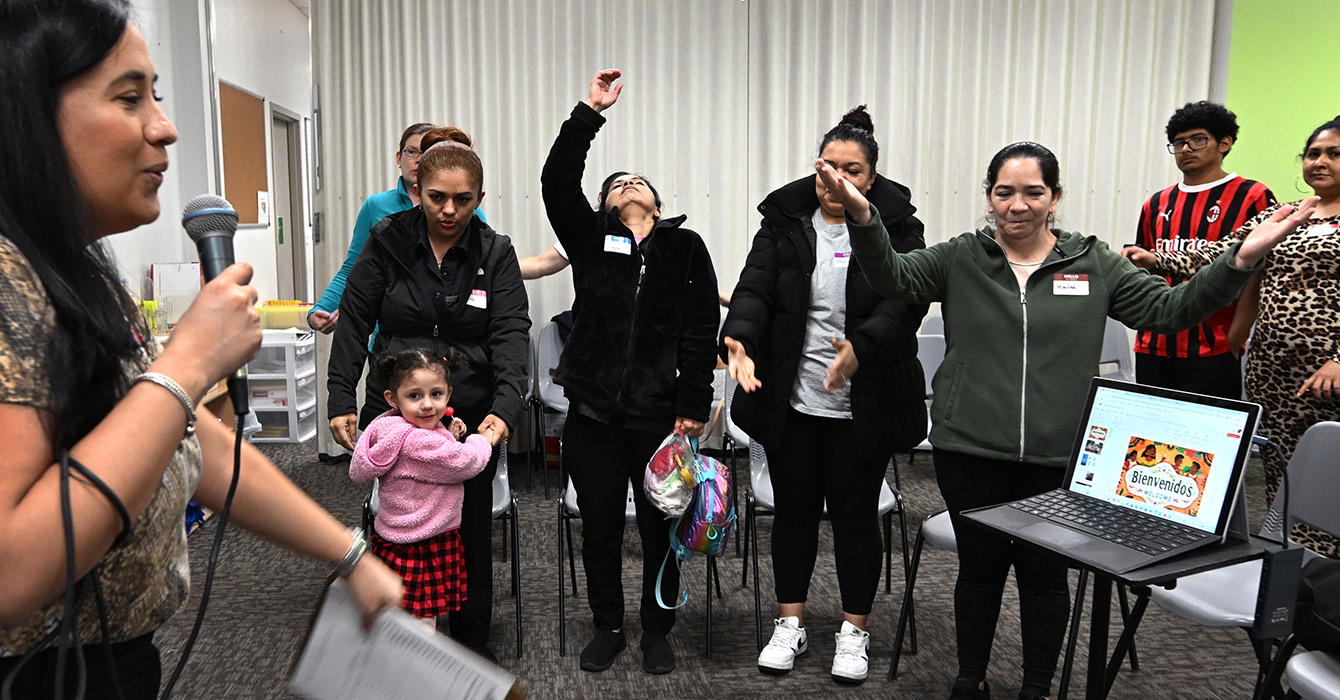Editor’s note: The following is an excerpt from a letter that Stanley Hauerwas wrote to his godson Laurence Bailey Wells on October 27, 2002, on the occasion of his baptism. It was the first in a series of annual letters from Hauerwas to Wells through January 2017, each commending a particular virtue. The collected letters are the subject of Hauerwas’ new book, “The Character of Virtue: Letters to a Godson.”
Your mother and father have asked me to write to you every year about a virtue that’s important for living the Christian life. It’s a welcome assignment that will force me to be articulate about matters I might otherwise leave unexamined. But there’s a danger in becoming so articulate that we might confuse thought and reflection with living well. Like me, your mother and father are people who have become what we call in the church “theologians.” The church calls some out to think hard about the Christian faith, but I think you’ll discover that the bearers of the virtues for sustaining the Christian faith aren’t necessarily theologians. Instead, they’re the people who, day in and day out, through small acts of tenderness and beauty, sustain the kind of life we call Christian. In short, Christians lead lives that would be unintelligible if God wasn’t present to us through the life, death, and resurrection of Jesus Christ.
That you are made a Christian on this day will take you a lifetime to live into. It will be a life often challenged by the world that is aborning. Being a Christian in such a world may well mean you won’t be celebrated in the wider society in which you find yourself. We’re living in what is often said to be an increasingly secular society, even though we have no idea what it means to call it secular. Still, at the very least, “secular” means you won’t be able to assume that the practices of your society can be relied on for sustaining you as a Christian. I hope you’ll find the lack of support to be a great good in that it will make you all the more joyful that you haven’t had to choose who you will be but will know it has been given to you through the Holy Spirit at your baptism.
In the not-too-distant past, a man named Dietrich Bonhoeffer wrote a letter addressed to another boy on his baptism. Bonhoeffer had to write a letter not because he was a great distance away, but because he was in prison. He was there because he courageously opposed the virulent evil of Nazi Germany. Bonhoeffer’s time was obviously one of great terror, but he wrote to his godson that he wished to live in no other time than the one that constituted his life -- a time he recognized as a threat to his very being. Such a time, he observed, lies under both the wrath and the grace of God. In the letter he quoted Jeremiah 45, in which God says that what God has built will be torn down. Bonhoeffer concluded by saying, “If we can save our souls unscathed out of the wreckage of our material possessions, let us be satisfied with that.”
Bonhoeffer noted that one of the reasons Christians failed to see the evil the Nazis represented was that pain had become a stranger to them. They sought unconsciously to be as free as possible from suffering and as a result lost their ability to live as Christians. Their desire to avoid suffering resulted in greater suffering -- which was made all the more horrible because innocent people, the Jews, had to suffer because of Christians’ unwillingness to do so. In fact, Bonhoeffer noted that Christians thought they could make their way in life guided only by reason and justice. When those ideals failed, they felt at the end of their tether.
It may seem strange to call attention to Bonhoeffer’s reflections on the day of your baptism because it is often assumed that we live in a very different world than he did. It is often said that we live in a free society where people can do what they want to do and choose who they want to be. So we assume the totalitarian threat that Bonhoeffer so valiantly fought has been defeated. For this reason, your baptism doesn’t appear to be a threat to your very existence.
But I urge you to be careful, because the soft worlds in which your mother and father and I live are in many ways more threatening than the world in which Bonhoeffer lived. They are so because the enemy is so hard to see, disguised as he is in clothes of sentimentality made possible by unimaginable wealth. You’ve been born into an extraordinarily wealthy society whose riches have often been acquired at the expense of others. The wealth of societies like America and England can be a great threat to the life you’ve been given through baptism in that it may tempt you and those around you to believe that you can live without suffering. But the baptism you undergo means that you’ve been made part of God’s war against the powers which would possess our lives by tempting us to believe that Christians are not at war with war.
So I do not wish you will have an untroubled life, but I hope the troubles you confront will be those made necessary by your being made a member of the Body of Christ. Such troubles will mean you’ll need many friends. And I hope you discover that nothing is more precious in the world than the gift of a friend. Friendship takes time, because we don’t easily come to know one another. But in a world that believes time is in short supply, God has given us all the time we need to become friends with one another. And in becoming friends with each other, we learn to become friends with God. I hope you will come to count me as a friend.
My profoundest wish for you is that as you grow, you grow confident in the faith. To be confident means you will never feel the need to protect God, because God doesn’t need our protection. With the Psalmist you will learn to pray, at once despairing that your life isn’t working out as you intended but remaining strong in your faith in God, who gives you the strength to be capable of despair. To be able to pray with such confidence is a great gift, and there’s nothing more that I could wish for your life.
I pray, finally, for you to have a happy life. To be a Christian is to be invited to be part of God’s creation, so that a Texas mockingbird and a loving dog (and cat) may fill us with joy. May you have a sense of humor made possible by such joy.
I look forward to the times when we might be together. May we laugh at and with one another.
Peace and love,
Stanley Hauerwas
Excerpted from “The Character of Virtue: Letters to a Godson,” by Stanley Hauerwas (Eerdmans, 2018). Used with permission.















